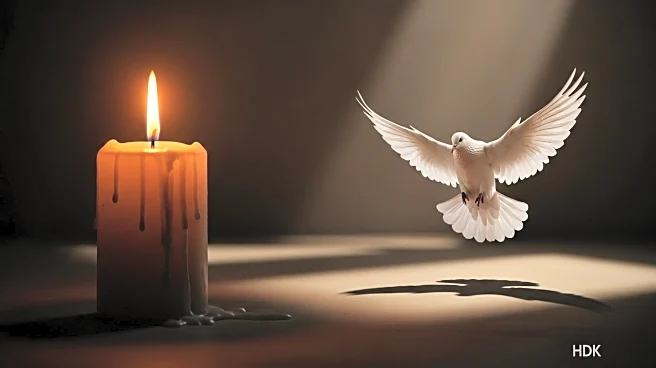What's Happening?
Rabbi Rick Jacobs, president of the Union for Reform Judaism, has expressed his reflections on the anniversary of the October 7 attack and the ongoing devastation in Gaza. He emphasized the readiness of both his community and the innocent people of Gaza for the conflict to end. Rabbi Jacobs highlighted the importance of leaning into hope during these challenging times, suggesting that despite the ongoing war, there is a collective desire for peace and resolution. His comments come as the region continues to experience significant turmoil, affecting countless lives and communities.
Why It's Important?
The reflections of Rabbi Rick Jacobs underscore the broader humanitarian impact of the conflict in Gaza, highlighting the urgent need for peace and reconciliation. His call for hope resonates with many who are affected by the ongoing violence, emphasizing the human cost of prolonged conflict. The situation in Gaza has significant implications for international relations and humanitarian efforts, as global leaders and organizations grapple with finding solutions to alleviate suffering and promote stability. Rabbi Jacobs' message serves as a reminder of the shared human desire for peace and the importance of maintaining hope in the face of adversity.
What's Next?
As the conflict continues, stakeholders including political leaders, humanitarian organizations, and affected communities are likely to intensify efforts to seek a resolution. Diplomatic initiatives may be pursued to broker peace, while humanitarian aid efforts aim to provide relief to those impacted by the violence. Rabbi Jacobs' call for hope may inspire further dialogue and collaboration among different groups seeking to end the conflict and support the rebuilding of affected communities.
Beyond the Headlines
The ongoing conflict in Gaza raises ethical and cultural questions about the impact of war on civilian populations and the responsibilities of international communities to intervene. Rabbi Jacobs' reflections highlight the moral imperative to prioritize human life and dignity, encouraging a broader conversation about the role of faith and community leadership in advocating for peace and justice.









